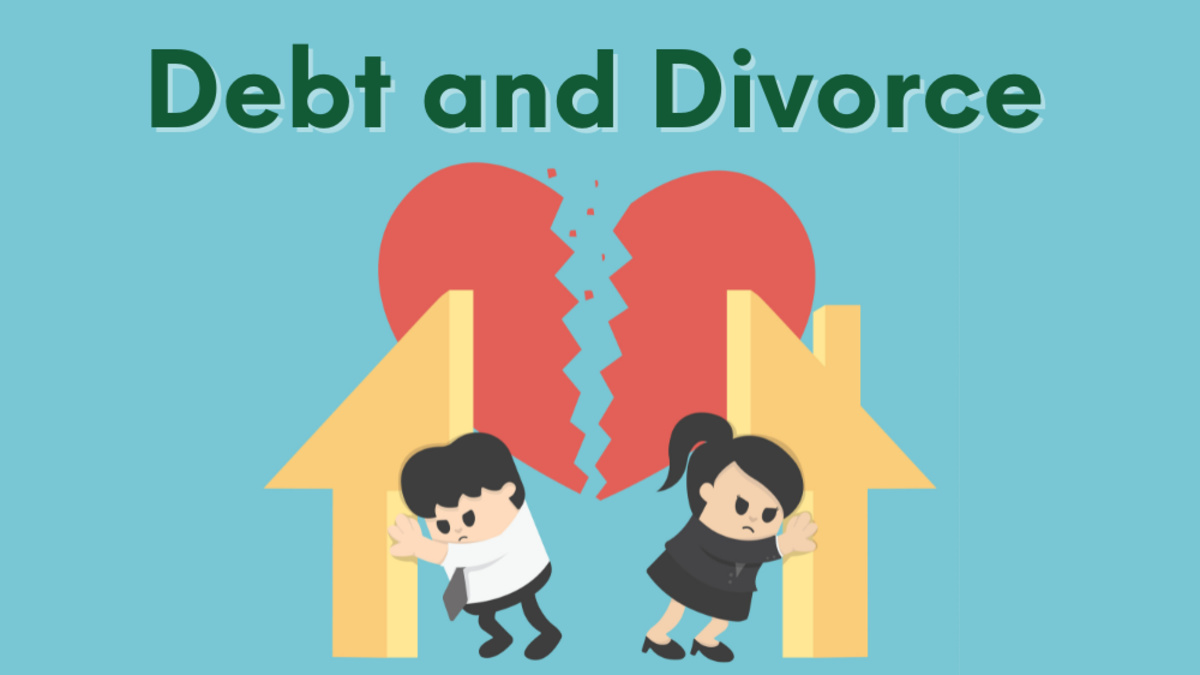Who Is Responsible for Debt During a Divorce?

Joy Wallet is advertiser-supported: we may earn compensation from the products and offers mentioned in this article. However, any expressed opinions are our own and aren't influenced by compensation. To read our full disclosure, click here.
Who is responsible for debt after divorce?
Community property states
Equitable distribution states
Debt not included in divorce proceedings
- Separate debts: Debts incurred by one spouse before the marriage or after separation are generally considered separate debts. These are typically not subject to division during divorce proceedings, and the spouse who incurred the debt is usually responsible for it.
- Premarital debts: If one spouse entered the marriage with existing debts, those debts typically remain their responsibility unless there is a specific agreement (such as a prenuptial agreement) that addresses the division of these debts in the event of divorce.
- Gifts and inheritances: In many jurisdictions, gifts and inheritances received by one spouse during the marriage are considered separate property and are not typically subject to division as marital debt. However, it's essential to consult with legal professionals in your jurisdiction to understand specific rules and exceptions.
- Student loans: Student loans acquired by one spouse before or during the marriage are generally considered separate debts. However, the division of student loan debt can vary by jurisdiction. It may depend on factors like the contribution of the non-borrowing spouse to the education and career of the other spouse.
- Judgments and legal fines: Debts related to legal judgments or fines resulting from actions taken by one spouse individually, such as a lawsuit or criminal charges, may not be considered marital debt unless both spouses were directly involved or benefited from the actions in question.
- Relieve $25k+ in credit card debt or personal loan debt with this special relief program.
- TurboDebt has a Trustpilot rating of 5/5 based on 1288 reviews
- Subject to qualification and approval. $1,500 monthly income required.
- Apply in 5 minutes. If you qualify, chat online with a friendly online debt representative.
What happens to debt during divorce proceedings?
- Identification and valuation: Both spouses must disclose all their debts. This includes mortgages, credit card debt, car loans, personal loans, and any other financial obligations. The court will then determine the total debt amount.
- Classification of debt: The court will categorize the debt as marital or separate. Marital debt is typically divided, while separate debt remains the responsibility of the spouse who incurred it before the marriage or after separation.
- Equitable division: In equitable distribution states, the court will consider various factors to determine how to divide the marital debt fairly. The goal is to ensure that neither spouse is burdened with an unfair share of the financial obligations.
- Court orders: Once the court decides on the division of debt, it issues a court order outlining each party's responsibilities. It is crucial to adhere to these orders to avoid legal consequences.
How to divide debt during a divorce
- Negotiation: Spouses can negotiate directly or with the assistance of attorneys to reach an agreement on how to divide the debt. This method provides more control over the outcome but requires effective communication and compromise.
- Mediation: Mediation involves a neutral third party who helps facilitate discussions between spouses to reach an agreement on debt division. Mediation can be a cost-effective and less adversarial approach.
- Court decision: The court will decide if spouses cannot agree on dividing debt. This option can be more time-consuming and costly, as it involves litigation.
- Debt consolidation or refinancing: In some cases, it may be possible for one spouse to refinance or consolidate the debt in their name alone, removing the other spouse's liability. This is often done with mortgages and joint loans.
- Relieve $25k+ in credit card debt or personal loan debt with this special relief program.
- TurboDebt has a Trustpilot rating of 5/5 based on 1288 reviews
- Subject to qualification and approval. $1,500 monthly income required.
- Apply in 5 minutes. If you qualify, chat online with a friendly online debt representative.
FAQs
The bottom line
Joy Wallet is an independent publisher and comparison service, not an investment advisor, financial advisor, loan broker, insurance producer, or insurance broker. Its articles, interactive tools and other content are provided to you for free, as self-help tools and for informational purposes only. They are not intended to provide investment advice. Joy Wallet does not and cannot guarantee the accuracy or applicability of any information in regard to your individual circumstances. We encourage you to seek personalized advice from qualified professionals regarding specific investment issues. Featured estimates are based on past market performance, and past performance is not a guarantee of future performance.
Our site doesn’t feature every company or financial product available on the market. We are compensated by our partners, which may influence which products we review and write about (and where those products appear on our site), but it in no way affects our recommendations or advice. Our editorials are grounded on independent research. Our partners cannot pay us to guarantee favorable reviews of their products or services.
We value your privacy. We work with trusted partners to provide relevant advertising based on information about your use of Joy Wallet’s and third-party websites and applications. This includes, but is not limited to, sharing information about your web browsing activities with Meta (Facebook) and Google. All of the web browsing information that is shared is anonymized. To learn more, click on our Privacy Policy link.
Images appearing across JoyWallet are courtesy of shutterstock.com.








